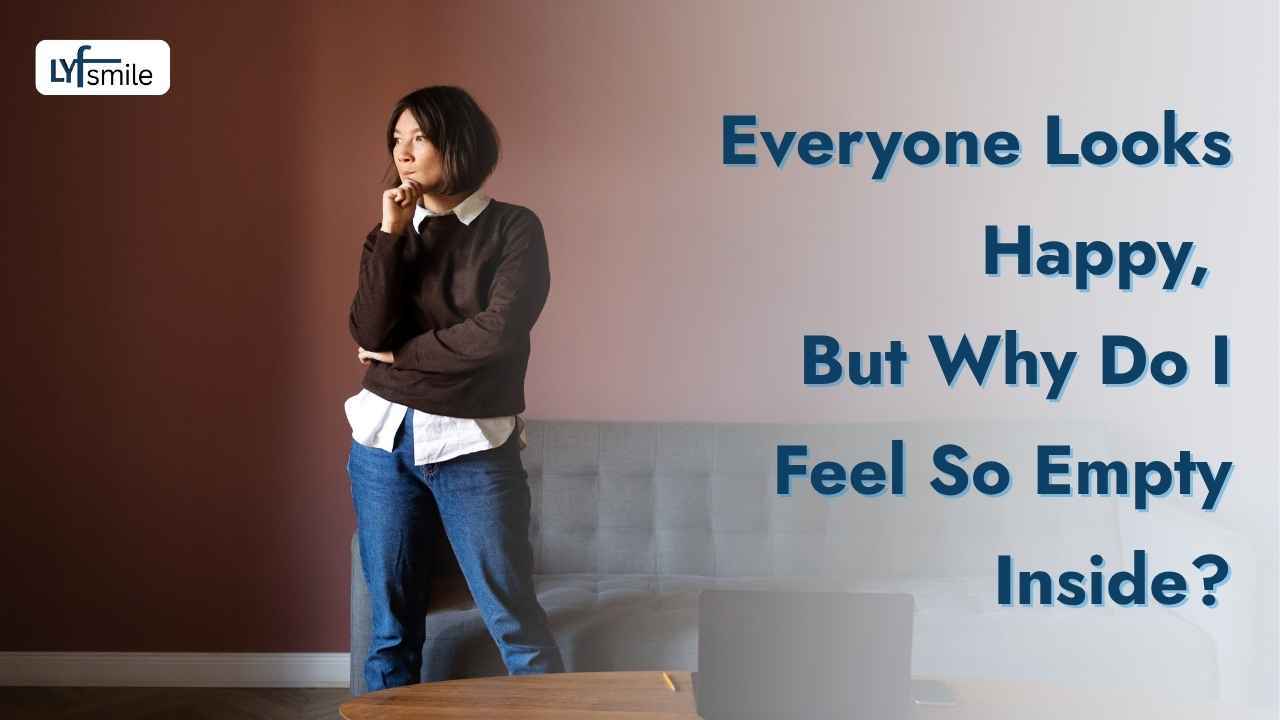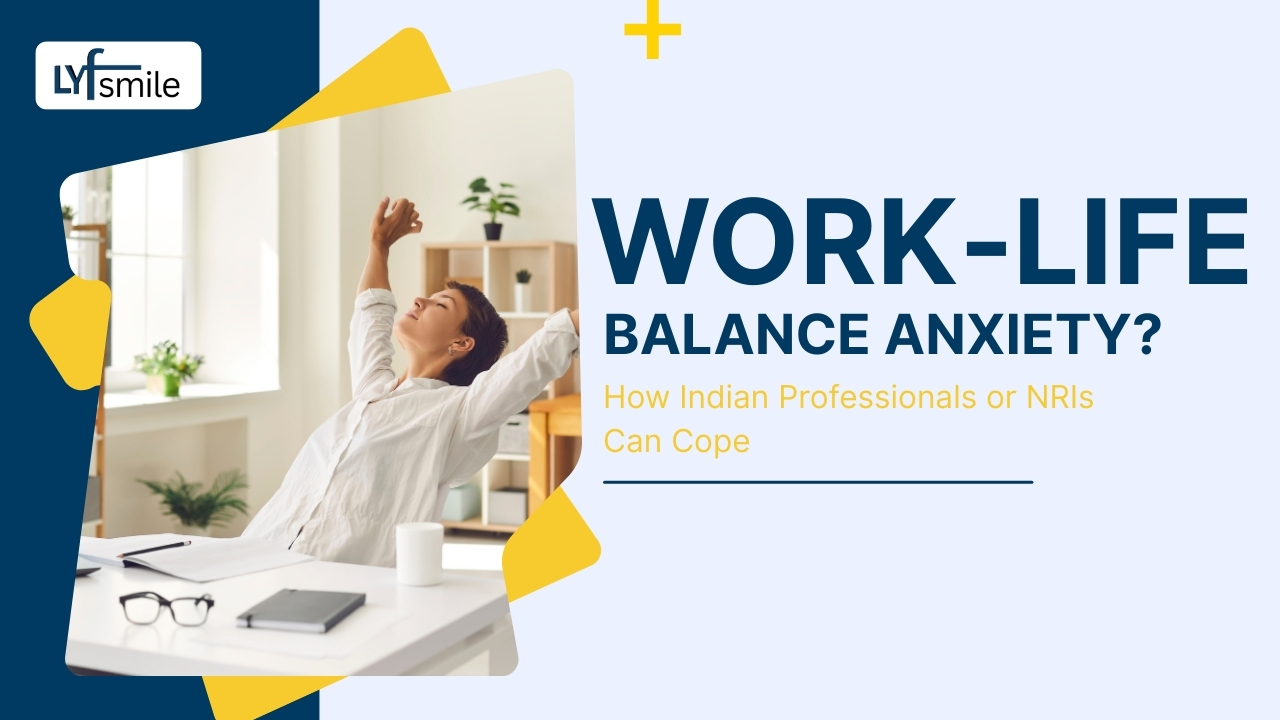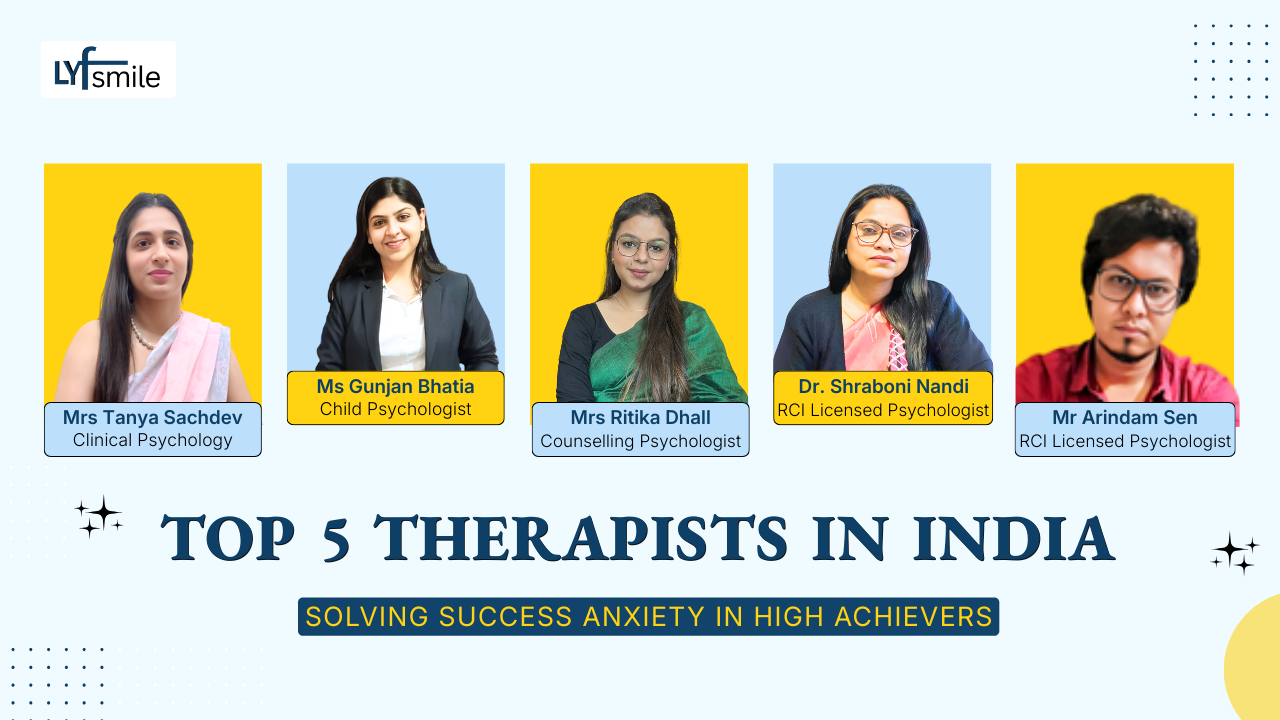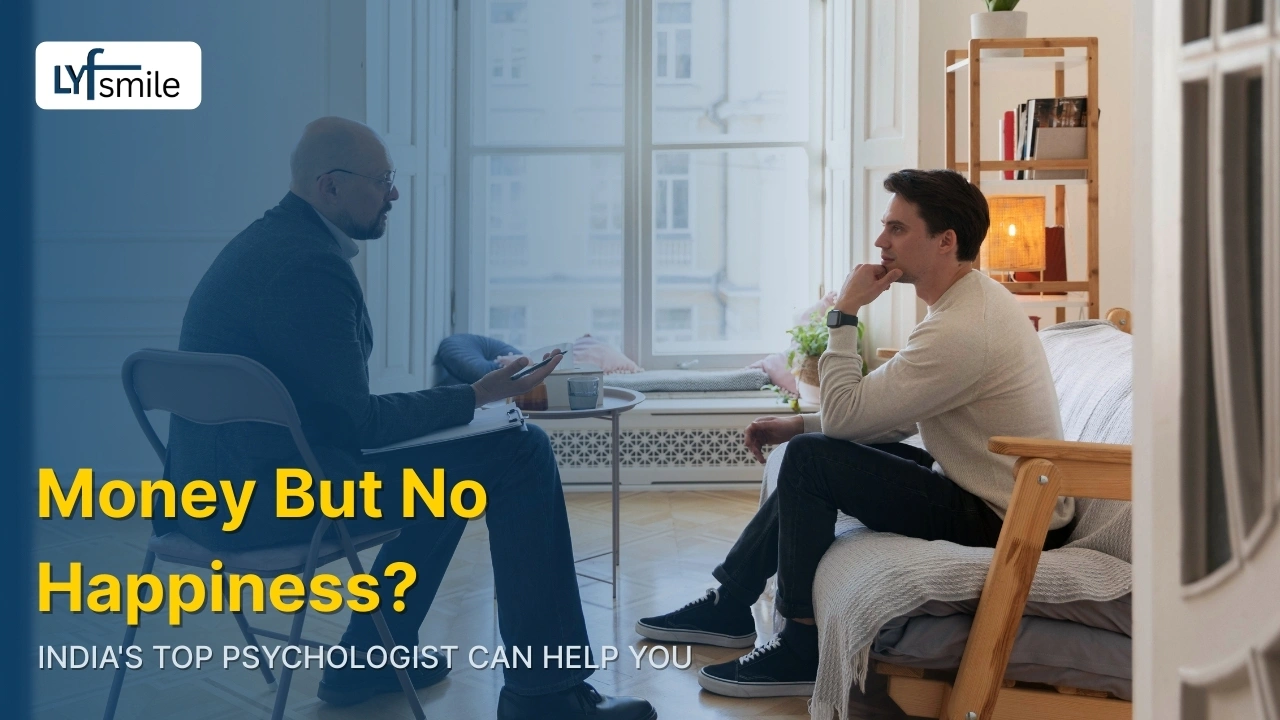
Anupam Tripathi
Everyone Looks Happy, But Why Do I Feel So Empty Inside?
Have you ever caught yourself scrolling through social media, watching others smile, travel, or celebrate — and suddenly thought, “Everyone looks happy, but why do I feel so empty inside?”
You’re not alone.
Many of us — especially teens and young adults — experience this quiet emptiness, even when everything seems fine on the outside. It’s confusing and painful to feel disconnected while the world around you looks full of joy.
In this blog, we’ll talk honestly about why these feelings happen and how you can start healing from them. You’ll learn:
Why it feels like everyone else seems happy but you’re not
How social media can make that feeling worse
The truth about comparing yourself to others
Why pretending to be okay can lead to emotional exhaustion
Practical ways to reconnect with yourself and feel truly content again
When to seek help for anxiety, panic attacks, or chronic sadness
By the end, you’ll understand that nothing is “wrong” with you — you’re simply human, living in a world that constantly pressures us to look happy.
So, take a deep breath and let’s start untangling what’s really behind this feeling of emptiness.
The Hidden Reasons Behind Your Loneliness
1. What Does It Really Mean When You Feel This Way?
Almost everyone has thought, “Everyone else seems happy but I’m not.”
You see friends laughing online, couples smiling, or people sharing their “perfect” lives — and you wonder, “Why can’t I be happy like others?”
This feeling doesn’t mean you’re weak or broken. It simply means you’re comparing your real life to what others show online. In today’s world, happiness often looks like a show — full of smiles, filters, and stories. And when you watch it too long, you start feeling empty while others enjoy life.
2. What Does It Really Mean to Feel Empty Inside?
Feeling empty isn’t about having no emotions — it means your heart feels tired. You may smile at school or work but think inside, “I smile outside but feel sad inside.”
This happens when you’re mentally drained, lonely, or pretending to be fine for too long.
You might notice:
You feel numb and exhausted all the time
You avoid people even when you want company
You can’t focus or enjoy what you used to love
You think, “I’m tired of pretending I’m okay.”
Example: Imagine always trying to cheer others up, but no one checks on you. Over time, that kindness turns into quiet sadness.
“Sometimes, you act fine not because you are — but because you’re tired of explaining.”
3. Why Social Media Makes Me Feel Worse
Social media can connect us — but it also creates invisible pressure. When you scroll through endless posts, you start believing that everyone else seems happy but I’m not.
Here’s what really happens:
You start comparing yourself to everyone online, even strangers.
You forget that most people only share happy parts of life.
Your brain begins to think you’re the only one struggling.
Example: A friend posts about getting a job or going on vacation. You feel behind, even though you don’t see their stress, failures, or tears.
“Social media shows smiles — not struggles.”
4. Why It Feels Hard to Talk About It
You may think, “I can’t talk to anyone about how I feel,” because you’re scared of being judged or misunderstood. But silence makes the sadness heavier.
Try starting small:
Write your thoughts in a journal.
Share a bit with someone you trust.
Remember, being honest about pain is strength — not weakness.
Example: Talking to a friend or counselor can feel awkward at first, but most people will surprise you with kindness and understanding.
“You don’t heal by hiding — you heal by being heard.”
5. When Anxiety and Panic Take Over
If you’ve been feeling pressure for too long, anxiety might start showing up. You might suddenly feel your heart racing, sweat, or think, “I’m scared I’ll fail at everything.”
Sometimes this leads to panic attacks — your body’s way of saying it’s overwhelmed.
How to Calm Down During Panic Attacks
Take slow breaths — in for 4 seconds, out for 6 seconds.
Touch something nearby to stay grounded.
Say to yourself, “I’m safe, this will pass.”
If it happens often, talk to a therapist about panic attack treatment.
Case Study
Jasleen, a 22-year-old college student, often thought, “Everyone else seems happy but I’m not.”
She spent hours comparing myself to everyone online, which made her feel empty while others enjoyed life. Slowly, she became numb and exhausted all the time and started thinking, “I’m tired of pretending I’m okay.”
After a mild panic attack, Jasleen decided to seek professional help and began therapy. With her therapist’s support, she learned how to calm down during panic attacks and started expressing her emotions instead of hiding them.
Over time, with small steps — reducing social media use, journaling, and resting — Jasleen began to feel lighter and more confident.
Steps to Heal and Reconnect with the Real You
Accepting That It’s Okay to Feel This Way
The first step to healing is acceptance. It’s okay to say, “Everyone else seems happy but I’m not.”
You don’t need to hide it or feel guilty about it. Every person has moments when life feels too heavy or emotions stop making sense. The truth is — happiness isn’t a race, and feeling lost doesn’t mean you’re falling behind.
“You are allowed to be both a masterpiece and a work in progress.”
Example: Think about your favorite movie character — they don’t smile in every scene. Some of their strongest moments come when they struggle, learn, and rise again. You’re the same.
Step 1: Stop Comparing Yourself to Others
It’s easy to compare myself to everyone online when their lives look so perfect. But remember, people show what they want others to see — not everything they live through.
Limit how much time you spend scrolling.
Follow accounts that make you feel calm, not insecure.
Remind yourself that your journey is different — and that’s okay.
Replace comparison with curiosity: “What can I learn from them?” instead of “Why am I not like them?”
Step 2: Understand the Source of Emptiness
Sometimes, feeling empty while others enjoy life comes from deeper reasons — burnout, loneliness, or too many expectations. Try to notice what’s draining you.
Ask yourself simple questions:
Am I doing things just to please others?
Have I been ignoring my emotions?
What used to make me happy before I felt this way?
Step 3: Take Care of Your Mind and Body
When you say, “I smile outside but feel sad inside,” your mind and body are asking for care.
Even small changes can make a big difference.
Try these daily habits:
Go for a short walk without your phone.
Keep a gratitude list — write 3 small things that made you smile.
Listen to calm music or practice breathing exercises.
Sleep on time; rest is the best therapy for an anxious mind.
Example: Spending just 10 minutes outside or stretching in your room can lower stress and improve your mood naturally.
“Healing doesn’t happen in a day, but it starts with one small act of care.”
Step 4: When You’re Tired of Pretending You’re Okay
It’s exhausting to act fine when you’re not. If you’ve been thinking, “I’m tired of pretending I’m okay,” it might be time to be honest — first with yourself, then with others.
Talk to someone you trust, or reach out to a counselor or therapist. They can help you find tools to handle sadness, anxiety, or emptiness.
Example: Sometimes, just one honest conversation can bring more relief than weeks of pretending.
“You deserve help, not because you’re weak — but because you’ve been strong for too long.”
Step 5: Learn to Handle Anxiety and Panic
If you often think, “I’m scared I’ll fail at everything,” or experience sudden fear, you may be dealing with anxiety or panic symptoms. Don’t ignore them. They’re messages from your mind asking for peace.
How to calm down during panic attacks:
Sit down and breathe deeply — 4 seconds in, 6 seconds out.
Touch something cold or soft to feel grounded.
Tell yourself: “I’m safe, this feeling will pass.”
Consider professional panic attack treatment if it happens often.
Step 6: Reconnect With Real People and Real Moments
In a digital world, connection often feels fake. Try spending more time with people in real life.
Go out for a walk with a friend, help a family member, or volunteer somewhere. These small interactions create genuine connections — something social media can’t replace.
Example: Even a simple conversation with someone who listens can remind you that happiness isn’t about perfection — it’s about presence.
“You don’t need to be like everyone else to be happy — you just need to be real.”
When You Feel Lost Inside — Learning to Be Gentle with Yourself
Realizing That You’re Not Alone
It’s easy to believe you’re the only one feeling lost or empty.
We all go through phases when we smile on the outside but feel tired inside. What matters is knowing these feelings can change — and they will change once you start caring for yourself gently.
Key Reminders for Everyday Healing
When life feels heavy or confusing, come back to these simple reminders:
Stop comparing yourself — your journey has its own timing.
Talk about your feelings — silence makes sadness grow.
Rest without guilt — your body and mind need breaks.
Use grounding techniques — especially when anxiety rises.
Reconnect with people and passions — they bring back real joy.
A Note for When You Feel Hopeless
If you ever think, “I’m tired of pretending I’m okay,” or “I can’t talk to anyone about how I feel,” remember this — help is always available. You are not a burden, and you deserve to be heard.
Reach out to someone — a friend, a family member, or a counselor. And if you experience strong anxiety, consider panic attack treatment or therapy. Talking to professionals is not a sign of weakness — it’s a step toward peace.
The Real Meaning of Happiness
Happiness isn’t about always feeling good. It’s about learning to accept every emotion — joy, sadness, confusion — as part of life. When you stop comparing yourself to everyone else, you realize happiness is already inside you, waiting to be noticed.
One day you’ll look back and realize this phase taught you more about strength, empathy, and real connection than any happy picture ever could.
A Few Things to Hold Onto When You Feel Lost
Here’s a quick recap to hold onto when things feel hard:
You are not alone — many feel the same way.
Stop comparing myself to everyone online — it steals peace.
It’s okay to rest, cry, and feel lost — it doesn’t mean you’ve failed.
Real happiness comes from honesty, not perfection.
Healing is slow, but every step matters.
Frequently Asked Questions (FAQs)
1. Is it normal to feel unhappy even when life seems fine?
Yes, it’s completely normal. Sometimes your outer life looks okay, but your inner self feels disconnected.
This usually means your emotional needs are not being met — not that something’s wrong with you.
2. Why do I lose interest in things I used to enjoy?
It can happen when you’re emotionally tired or overwhelmed.
Your mind may be asking for rest, reflection, or a change in routine.
Try slowing down and doing small things that once made you feel alive, without pressure to “feel happy.”
3. How can I stop comparing my life to others?
Remind yourself that social media only shows highlights, not real stories.
Focus on your own progress — even tiny steps count.
Gratitude journaling or screen breaks can help you reconnect with your own reality.
4. What should I do when I feel disconnected from myself?
Start by noticing, not judging, that feeling.
Spend quiet time alone, write your thoughts, or do something creative.
Reconnection begins when you stop trying to “fix” yourself and simply start understanding yourself.
5. Can overthinking make sadness worse?
Yes — constant overthinking traps your mind in “what-ifs.”
Instead of solving the problem, it deepens emotional fatigue.
Practicing mindfulness or grounding exercises can help calm that loop.
6. Why do I feel emotionally drained even after resting?
Because emotional rest is different from physical rest.
You may need a break from pretending, not just from work or chores.
True rest happens when you allow yourself to feel without hiding it.
7. How do I support a friend who feels this way?
Listen without trying to fix them.
Sometimes people don’t need advice — just someone to understand.
Remind them gently that they’re not alone and that it’s okay to seek help.
8. Will I ever feel truly happy again?
Yes — though it might not look like the happiness you expect.
Peace often starts quietly — in moments of honesty, self-care, and self-acceptance.
With time, the emptiness will fade, and you’ll rediscover joy in small, real things.
9. How can I tell if I need professional help?
If sadness, emptiness, or anxiety lasts more than a few weeks or affects your sleep, relationships, or focus — reaching out to a therapist can help.
Therapy isn’t weakness; it’s a step toward understanding and rebuilding yourself safely.
Final Thought
Life can feel confusing when everyone around you seems happy, confident, and connected — and you’re just trying to keep it together.
But as you’ve seen throughout this journey, happiness isn’t about smiling all the time or being like everyone else.
It’s about understanding your emotions, accepting the low moments, and giving yourself space to breathe.
This blog showed that comparing yourself to others — especially online — only deepens the emptiness.
Real peace begins when you stop pretending and start being honest with how you truly feel.
You learned that it’s okay to rest, to cry, and to feel lost sometimes; those moments don’t make you weak — they make you real.
Healing takes time.
Some days you’ll move forward; some days you’ll just hold on — and both count as progress.
You deserve compassion, not pressure.
So take things slowly, listen to your heart, and remember: you are not behind, you are becoming.








